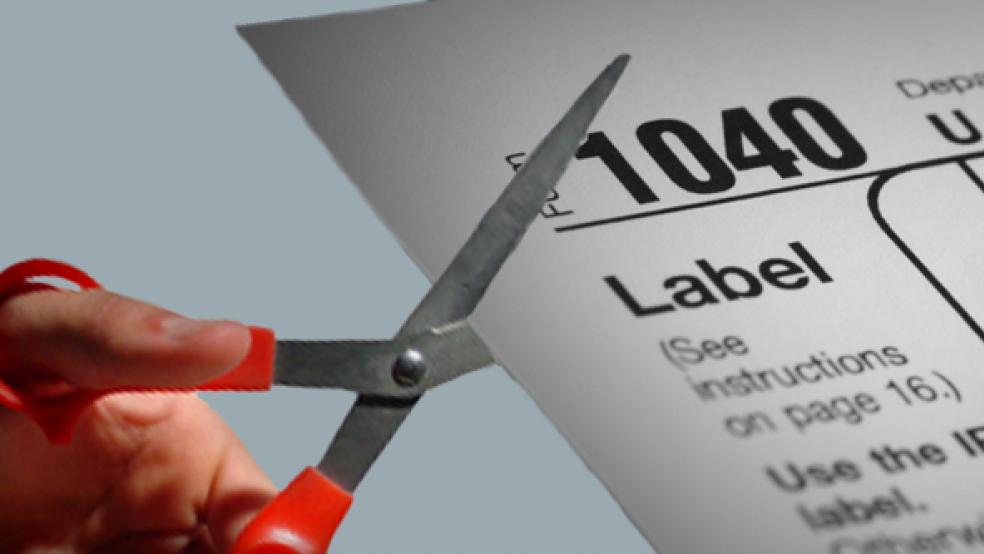A bipartisan group of Senate tax-writers clinched a tentative deal on Wednesday to renew dozens of business tax breaks that have expired or will lapse at year-end, two top senators said, with further action set for Thursday.
The rare bipartisan pact crafted by Democrats and Republicans on the Senate Finance Committee would also prevent the alternative minimum tax, intended to ensure the rich pay some taxes, from creeping into the tax bite on the middle class.
"This effort has proven that legislating can still be done if both sides work together," Senator Max Baucus, the committee's Democratic chairman, said.
Lawmakers trimmed almost a quarter of the tax breaks in the draft, including a tax credit the wind energy industry has argued is critical.
The deal must still be reconciled with competing demands in the Republican-controlled House of Representatives, but a bipartisan agreement in the Senate is notable progress.
Some energy tax breaks are more controversial among Republican House conservatives, who also might not agree to extending the tax breaks without offsetting spending cuts.
The billions of dollars in tax breaks are among the items Congress faces before the end of the year, though a final deal is unlikely before the November 6 presidential and congressional elections.
This group of provisions is known as the "tax extenders" because they expire every year and typically are extended.
They represent just some of many fiscal policy issues converging at the end of 2012 in what is being called the "fiscal cliff." It includes hundreds of billions of dollars in expiring income tax cuts and automatic federal spending cuts.
Big companies will likely cheer the extenders deal, with many benefiting from the popular research and development tax credit, one of the biggest in the package.
Also included in the deal is renewal and extension of a tax break for banks and other financial institutions, and individual tax deductions for state and local taxes, for teachers and users of mass transit. The panel will work on the draft legislation, and possibly vote on it, on Thursday.
A draft of the legislation can be found here.
WIND TAX CREDIT LEFT OUT
Left out of the deal is a 2.1-cents per kilowatt-hour production tax credit for wind energy, a tax break that the industry says is essential to developing more wind farms and supporting jobs at wind manufacturing plants. The production tax credit could be added as an amendment to the draft legislation, said Whitney Stanco, an energy policy analyst with Guggenheim Partners in an email to clients.
"The wind production credit is a priority for Chairman Baucus and he will continue to fight for it as the process continues," a Baucus spokesman said.
Democratic President Barack Obama has urged Congress to extend the credit, which has support from Republicans in states that are home to wind farms and manufacturing plants, such as Iowa and South Dakota.
But some Republicans have argued that the industry should be able to stand on its own. Republican presidential candidate Mitt Romney favors letting the credit expire, a campaign spokesman told the Des Moines Register earlier this week.
The head of the world's biggest wind turbine maker, Vestas, has said that the U.S. wind turbine market is likely to fall by 80 percent next year if the credit expires. The decision is also being closely watched by manufacturers such as U.S. conglomerate GE, Germany's Siemens, Spain's Gamesa and India's Suzlon.




